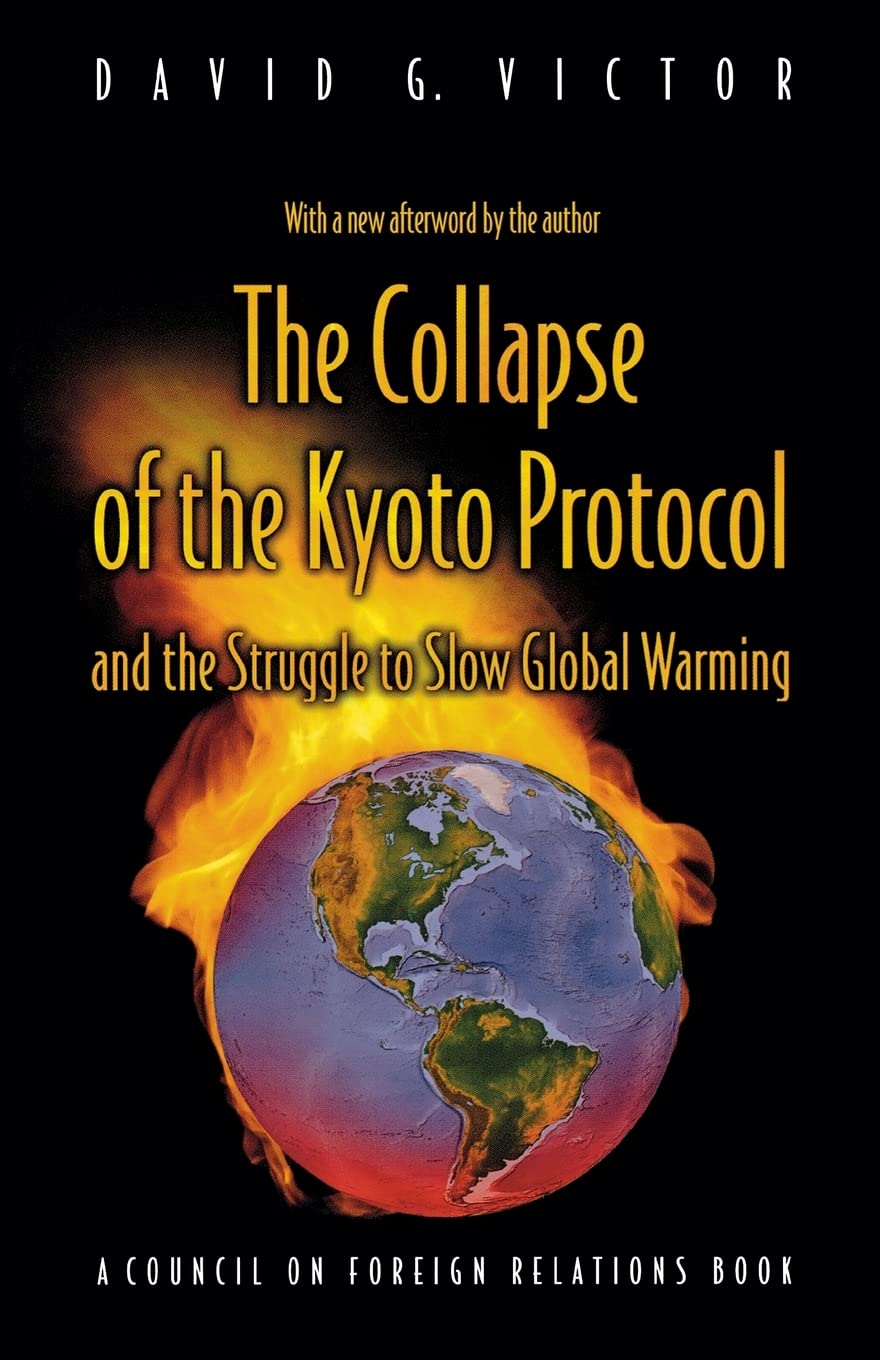The Collapse of the Kyoto Protocol and the Struggle to Slow Global Warming
The Collapse of the Kyoto Protocol and the Struggle to Slow Global Warming is backordered and will ship as soon as it is back in stock.
Couldn't load pickup availability
Genuine Products Guarantee
Genuine Products Guarantee
We guarantee 100% genuine products, and if proven otherwise, we will compensate you with 10 times the product's cost.
Delivery and Shipping
Delivery and Shipping
Products are generally ready for dispatch within 1 day and typically reach you in 3 to 5 days.
Book Details
-
Author: David G. Victor
-
Brand: Princeton University Press
-
Binding: Paperback
-
Number of Pages: 232
-
Release Date: 15-08-2004
-
ISBN: 9780691120263
-
Package Dimensions: 8.3 x 5.4 x 0.4 inches
-
Languages: English
About The Book
In this insightful and thought-provoking book, David G. Victor examines the complexities of global warming and the international response to this critical issue. As the evidence of global warming mounts, Victor highlights the challenges nations face in tackling this problem, focusing on the collapse of the Kyoto Protocol and its implications for future environmental agreements.
Victor presents a clear and compelling argument about the flaws of the Kyoto Protocol. He explains how the treaty, though initially hailed as a significant step in the fight against climate change, faced insurmountable obstacles—especially the reliance on emissions trading. With the Protocol requiring industrialized nations to meet specific emissions targets and allowing them to trade emissions credits, Victor points out that the scheme was built on shaky foundations. The creation of emission permits worth two trillion dollars, along with issues related to monitoring, enforcement, and permit allocation, made the Protocol an unworkable solution.
Reissued with an afterword that reflects on recent events, this book offers a realistic assessment of the challenges ahead and provides a fresh perspective on how a more effective alternative might be created. Victor’s detailed analysis will resonate with policymakers, environmentalists, and anyone concerned about the future of our planet.





